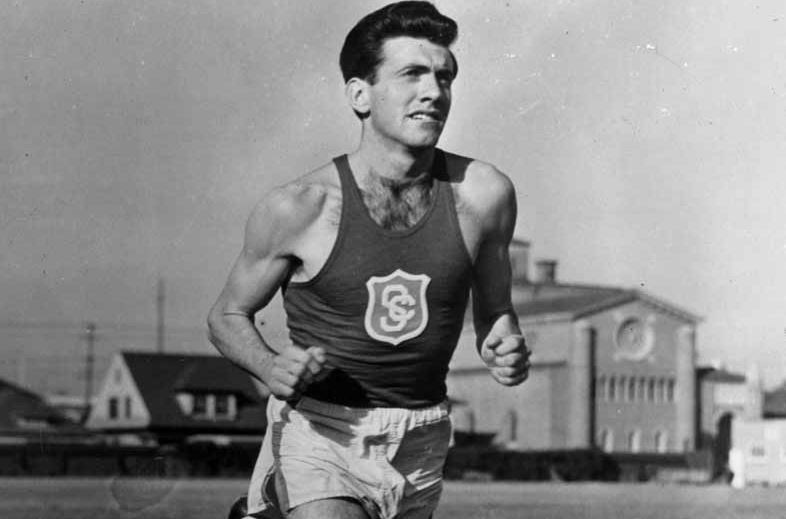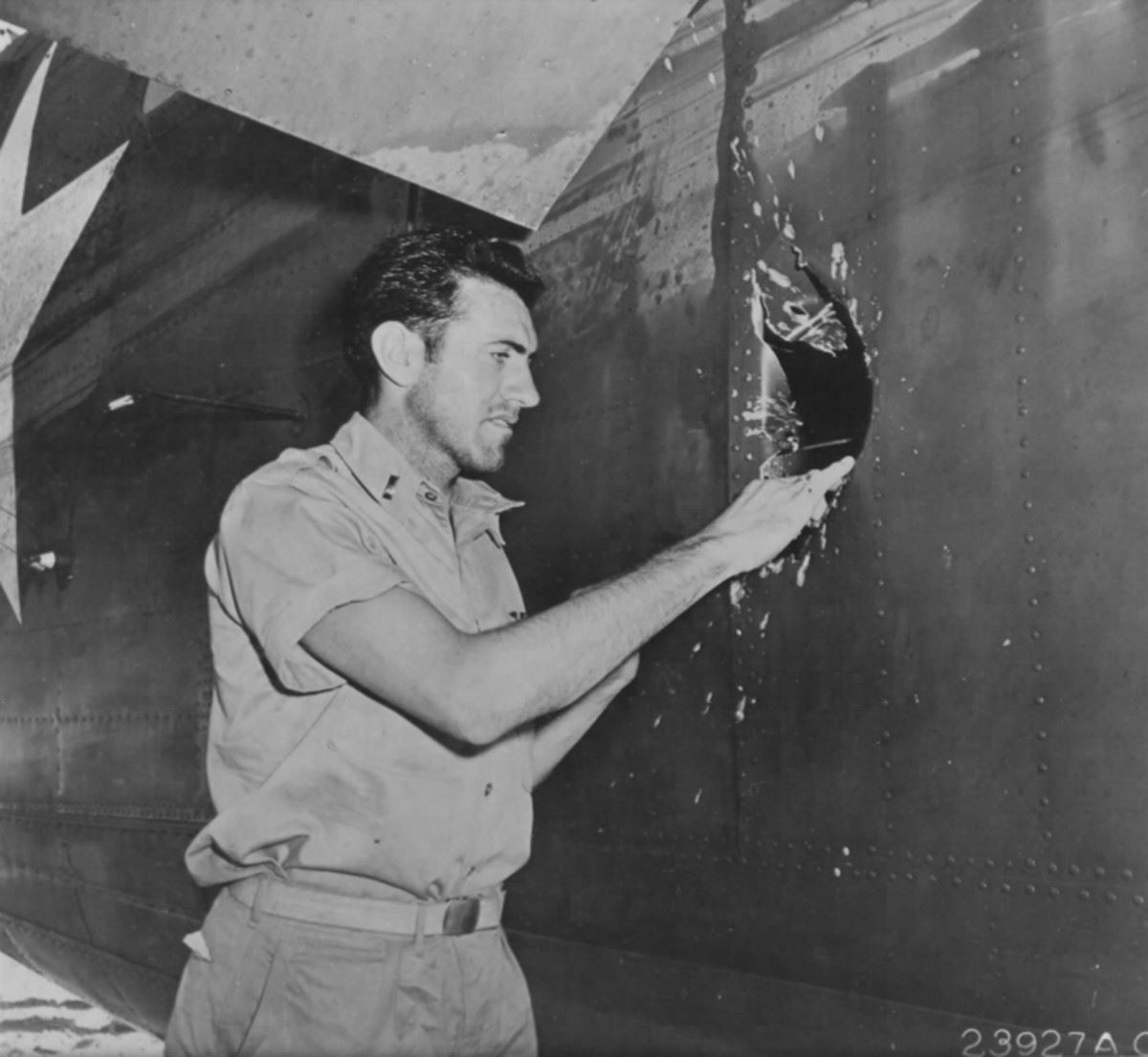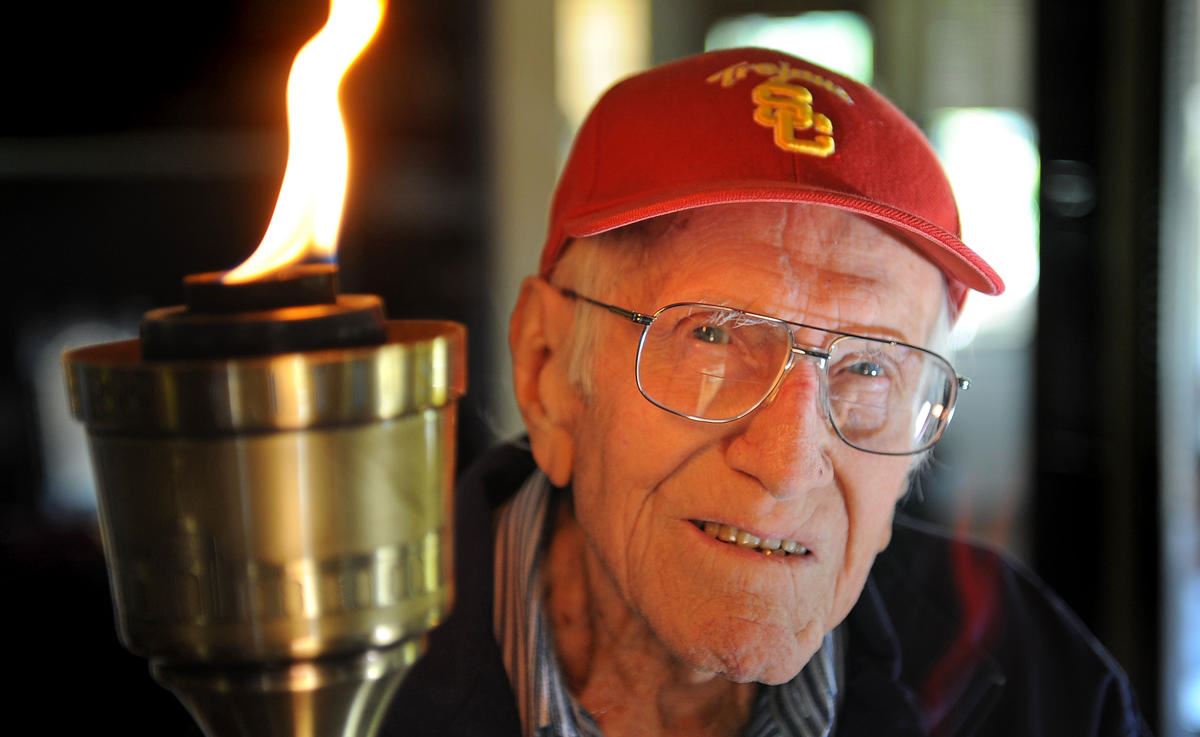“One moment of pain is worth a lifetime of glory.”
“At their best, superhero origin stories inspire us and provide models of coping with adversity, finding meaning in loss and trauma, discovering our strengths and using them for good purpose” (Rosenberg). Based on Robin Rosenberg’s theory on the importance of superheros in her article “The Psychology Behind Superhero Origin Stories,” it is clear that superheroes have an influence on our lives, especially when we are looking for answers in times of darkness. In order to be like superheroes and make memorable impacts on the world, one must have the ability to conquer hardship and persevere through difficult situations, regardless of class or social status. By using their experiences of misfortune, heroes are able to change the world for the better. In my opinion, a hero should also have a sense of loyalty and devotion for a worthy cause, whether it is for their country, saving lives, or striving to achieve a goal. Such heroism can be found all over the world from the military force fighting to protect their country, to students who stand up to bullies for their friends, or even teachers who spend their holidays grading papers for their students. These heroes understand that loyalty and perseverance are the keys to achieve their goals and change the world.
 Louis Zamperini, Torrance California, hish school runner, set a new world interscholastic record of 4 minutes 21.3 seconds for the mile at the Los Angeles Coliseum, May 19th.https://www.gettyimages.com/detail/news-photo/louis-zamperini-torrance-california-hish-school-runner-set-news-photo/515384344#/louis-zamperini-torrance-california-hish-school-runner-set-a-new-picture-id515384344Fortunately, a hero like this exists in our world. Louis Zamperini, an Olympic track star and veteran during World War II, turned his misfortunes into blessings to reach his goals. Torrance, California was home to this troublemaker turned hero, who was born to an Italian immigrant family on January 26th, 1917. Because of his upbringing in an immigrant household, Zamperini primarily spoke Italian and little English, a setback that made him the perfect target for bullies. As an outlet, he resorted to drinking, smoking, committing crimes, and always used his extraordinary speed to run away from the grasps of the police. Determined to change his attitude, his older brother, Pete, encouraged Zamperini to use his speed to compete on the track rather than running away from law enforcement. Zamperini was reluctant, especially at his first race, where he lost miserably due to his unhealthy addictions. However, he soon fell in love with the sport and devoted his high school career to training religiously, earning him the chance to compete at the 1936 Berlin Olympics at the ripe age of 19. Placing eighth in the 1936 competition, Zamperini was determined to try again and aimed for higher placement in the 1940 Tokyo Olympics. Unfortunately, enlisting in the U.S. Air Force and serving World War II cost him his dream of ever winning gold at the Olympics. On May 27, 1943, during a search and rescue flight, his plane’s gas tank erupted and the plane crashed, leaving him stranded in the middle of the Pacific Ocean for 47 days. Even after he was “rescued” by the enemy, the Japanese, he was transferred to multiple prison camps where he was tortured physically and mentally every day. After surviving this ordeal, Zamperini was released in 1945, and finally returned to the States; however, he did not regained his freedom. Constantly haunted by the memories of abuse from the Japanese captors, Zamperini suffered from PTSD and could not find a stable job; therefore, he heavily relied on alcohol to abandon his problems and find his own freedom. On the brink of losing everything, Zamperini attended a religious event and remembered praying to God during the war to keep himself alive, despite being an atheist. To return God’s blessings, Zamperini became a Christian and began re-evaluating his life seeking for reasons to thrive. He picked himself up and devoted the rest of his life, helping others through forming youth camps, becoming a coach for track, and preaching about his encounter with God until his death on July 2, 2014. By using his misfortunes to make an impact on the world, Zamperini stands as an inspirational figure and hero to all. Despite continuously facing challenges, Louis Zamperini’s unwavering loyalty to his country and endless determination to overcome adversity kept his spirit unbroken; thus, he possesses the traits of an admirable hero.
Louis Zamperini, Torrance California, hish school runner, set a new world interscholastic record of 4 minutes 21.3 seconds for the mile at the Los Angeles Coliseum, May 19th.https://www.gettyimages.com/detail/news-photo/louis-zamperini-torrance-california-hish-school-runner-set-news-photo/515384344#/louis-zamperini-torrance-california-hish-school-runner-set-a-new-picture-id515384344Fortunately, a hero like this exists in our world. Louis Zamperini, an Olympic track star and veteran during World War II, turned his misfortunes into blessings to reach his goals. Torrance, California was home to this troublemaker turned hero, who was born to an Italian immigrant family on January 26th, 1917. Because of his upbringing in an immigrant household, Zamperini primarily spoke Italian and little English, a setback that made him the perfect target for bullies. As an outlet, he resorted to drinking, smoking, committing crimes, and always used his extraordinary speed to run away from the grasps of the police. Determined to change his attitude, his older brother, Pete, encouraged Zamperini to use his speed to compete on the track rather than running away from law enforcement. Zamperini was reluctant, especially at his first race, where he lost miserably due to his unhealthy addictions. However, he soon fell in love with the sport and devoted his high school career to training religiously, earning him the chance to compete at the 1936 Berlin Olympics at the ripe age of 19. Placing eighth in the 1936 competition, Zamperini was determined to try again and aimed for higher placement in the 1940 Tokyo Olympics. Unfortunately, enlisting in the U.S. Air Force and serving World War II cost him his dream of ever winning gold at the Olympics. On May 27, 1943, during a search and rescue flight, his plane’s gas tank erupted and the plane crashed, leaving him stranded in the middle of the Pacific Ocean for 47 days. Even after he was “rescued” by the enemy, the Japanese, he was transferred to multiple prison camps where he was tortured physically and mentally every day. After surviving this ordeal, Zamperini was released in 1945, and finally returned to the States; however, he did not regained his freedom. Constantly haunted by the memories of abuse from the Japanese captors, Zamperini suffered from PTSD and could not find a stable job; therefore, he heavily relied on alcohol to abandon his problems and find his own freedom. On the brink of losing everything, Zamperini attended a religious event and remembered praying to God during the war to keep himself alive, despite being an atheist. To return God’s blessings, Zamperini became a Christian and began re-evaluating his life seeking for reasons to thrive. He picked himself up and devoted the rest of his life, helping others through forming youth camps, becoming a coach for track, and preaching about his encounter with God until his death on July 2, 2014. By using his misfortunes to make an impact on the world, Zamperini stands as an inspirational figure and hero to all. Despite continuously facing challenges, Louis Zamperini’s unwavering loyalty to his country and endless determination to overcome adversity kept his spirit unbroken; thus, he possesses the traits of an admirable hero.
 Louis Zamperini in his 3rd year of track at USChttps://www.gospelherald.com/articles/53578/20141213/unbroken-louis-zamperini-s-daughter-talks-about-his-extraordinary-life-and-walk-with-god.htmBy relying on his mental strength and determination, Louis Zamperini was able to overcome adversity to not only reach his personal goals, but to also impact people through sharing his experiences. When Zamperini was a child, he was a magnet for troubles as he often committed thievery and vandalism; however, when he discovered his passion for running, his ambition was to aim straight for the Olympics: “Louie trained so hard that he rubbed the skin right off one of his toes, leaving his sock bloody” (Hillenbrand 56). The image of physical pain and suffering may cause discomfort to some, but to Zamperini, it was the work needed to build the physical strength and stamina for his dream. The speed he needed to reach the Olympics caused Zamperini's skin to peel off, and proved his passion for running. Understanding the work he needed to put into his dream, he endured his physical pain and never gave up, showing true determination. Even after achieving his ultimate goal of being an Olympian, Zamperini did not stop there. Recognizing that running was an outlet from his problematic childhood, he organized a youth camp for troubled kids, taught them his wisdom, and encouraged them to make better life choices. Such acts credited Zamperini as a selfless person who not only achieved goals through mental determination and physical perseverance, but also became an influential figure, making a big impact on his community. However, impacting the young community is not the only achievement that Zamperini completed after his return from the military. While serving as a soldier in World War II, Zamperini and his crew were found adrift in the middle of the Pacific Ocean for 47 days after crashing their plane. During this time, they were, unfortunately, fired at continuously by Japanese bombers hunting for American soldiers. Although Zamperini’s raft was punctured by bullets multiple times, he determinedly lead the exhausted soldiers to resolve the issue:
Louis Zamperini in his 3rd year of track at USChttps://www.gospelherald.com/articles/53578/20141213/unbroken-louis-zamperini-s-daughter-talks-about-his-extraordinary-life-and-walk-with-god.htmBy relying on his mental strength and determination, Louis Zamperini was able to overcome adversity to not only reach his personal goals, but to also impact people through sharing his experiences. When Zamperini was a child, he was a magnet for troubles as he often committed thievery and vandalism; however, when he discovered his passion for running, his ambition was to aim straight for the Olympics: “Louie trained so hard that he rubbed the skin right off one of his toes, leaving his sock bloody” (Hillenbrand 56). The image of physical pain and suffering may cause discomfort to some, but to Zamperini, it was the work needed to build the physical strength and stamina for his dream. The speed he needed to reach the Olympics caused Zamperini's skin to peel off, and proved his passion for running. Understanding the work he needed to put into his dream, he endured his physical pain and never gave up, showing true determination. Even after achieving his ultimate goal of being an Olympian, Zamperini did not stop there. Recognizing that running was an outlet from his problematic childhood, he organized a youth camp for troubled kids, taught them his wisdom, and encouraged them to make better life choices. Such acts credited Zamperini as a selfless person who not only achieved goals through mental determination and physical perseverance, but also became an influential figure, making a big impact on his community. However, impacting the young community is not the only achievement that Zamperini completed after his return from the military. While serving as a soldier in World War II, Zamperini and his crew were found adrift in the middle of the Pacific Ocean for 47 days after crashing their plane. During this time, they were, unfortunately, fired at continuously by Japanese bombers hunting for American soldiers. Although Zamperini’s raft was punctured by bullets multiple times, he determinedly lead the exhausted soldiers to resolve the issue:
If patching was all we needed, it might have been easy, but everyone had to pump to keep the raft afloat. During my turn I grew so tired that I put the handle on my chest and pulled the pump toward me. We’d take five-minute shifts, going around in a circle; for the first few days we pumped around the clock. It was brutal. Mac could only do it maybe five times; Phil a bit more. I had to do fifty or a hundred pumps to make up for them… On the thirty-second day I was still patching the raft, stopping to pump only about once every fifteen minutes. (Zamperini 141)
Zamperini’s continuous effort at pumping the life raft, proved his determination to keep his crew alive. Despite being faced with starvation, potential drowning, and an exhausted crew, Zamperini’s mental strength kept his head clear and persevered through this life and death situation. Due to his strong will, he survived the deadly war to tell the tales and shared his personal war stories to people across the globe. His experience and survival skills were a useful resource in developing and improving warfare materials and supplies. Such valuable input has helped protect and save many soldiers’ lives at war. Louis Zamperini’s unceasing determination not only helped him reach his goals in saving his crew, but also transformed the world for the better.
 Zamperini examines a hole in his B-24D Liberator Super Man made by a 20mm shell over Nauru.https://www.biography.com/sitemaps/ContentArticle/2014.xmlLouis Zamperini’s unwavering loyalty to his country served as a motivation for him to protect those at home despite being physically and mentally tortured, pushing him to conquer adversity. As a prisoner of war, Zamperini was held captive by the Japanese for being a loyal soldier to their enemy, the United States. He was starved in preparation for his interrogation where they tempted him with delicious food and drinks. Hoping that Zamperini would leak secrets and useful knowledge that would aid Japan in winning the war, the Japanese authorities questioned him on American planes: “ ‘How do you operate the radar?’ ‘I have no idea’ I said. ‘That’s the radioman or engineers job.’ I really did know, but it was my way out. They were not happy. I returned to my cell without a snack, drink or cigarette” (Zamperini 158). Zamperini could have easily saved his own life by sharing secret military intelligence and devoured the offerings; however, his loyalty to his country and its citizens is much greater than his own physical well being. His sacrifice not only helped save Americans back home but also served as an influence to other war prisoners and inspired them to have the same mentality to strive through the war. Additionally, when he was physically beaten, the Japanese tempted Zamperini with the option to escape torture by spreading Japanese propaganda directed towards the United States through radio broadcasting:
Zamperini examines a hole in his B-24D Liberator Super Man made by a 20mm shell over Nauru.https://www.biography.com/sitemaps/ContentArticle/2014.xmlLouis Zamperini’s unwavering loyalty to his country served as a motivation for him to protect those at home despite being physically and mentally tortured, pushing him to conquer adversity. As a prisoner of war, Zamperini was held captive by the Japanese for being a loyal soldier to their enemy, the United States. He was starved in preparation for his interrogation where they tempted him with delicious food and drinks. Hoping that Zamperini would leak secrets and useful knowledge that would aid Japan in winning the war, the Japanese authorities questioned him on American planes: “ ‘How do you operate the radar?’ ‘I have no idea’ I said. ‘That’s the radioman or engineers job.’ I really did know, but it was my way out. They were not happy. I returned to my cell without a snack, drink or cigarette” (Zamperini 158). Zamperini could have easily saved his own life by sharing secret military intelligence and devoured the offerings; however, his loyalty to his country and its citizens is much greater than his own physical well being. His sacrifice not only helped save Americans back home but also served as an influence to other war prisoners and inspired them to have the same mentality to strive through the war. Additionally, when he was physically beaten, the Japanese tempted Zamperini with the option to escape torture by spreading Japanese propaganda directed towards the United States through radio broadcasting:
Still smiling, the producers asked him to join them on a little tour. They brought him to a cafeteria and served him a delicious American-style meal, then took him to a private living area that had beds with mattresses and sheets. If Louie would make the broadcast, the producers said, he could live here, and he’d never have to see Omori again. Finally, Louie was introduced to a group of men, Australians and Americans. These men, the producers said, were helping them make broadcasts. As Louie held out his hand, the propaganda prisoners dropped their eyes to the floor. Their faces said it all; if Louie agreed to make this broadcast, he would be forced into a life as his enemy’s propagandist. Louie was taken back to the studio and urged to do the broadcast. He refused. The smiles evaporated; the faces hardened. The producers ordered him to do it. He said no. (Hillenbrand 248)
By choosing to go back to harsh conditions as a war prisoner, Zamperini disregarded his physical needs to survive, proving his invaluable devotion to his people. Zamperini could have chosen the easy way out and live the luxurious life offered by the Japanese; yet, his disobedience to the prison guard’s demands and his defiant refusal to lie showed great loyalty to his belief in his country. By utilizing this loyalty, Zamperini was a model of inspiration to the other prisoners. If he was able to hold his pride, other prisoners believed they could help their country win the war too. His steadfast devotion is an act of heroism for being selfless and sacrificing his own being to stand for his beliefs and protect loved ones back home.
 Louis Zamperini holding the torch from the Nagano Olympicshttps://www.louiszamperinifoundation.org/Through his personal experiences of determination to conquer adversity and resolute patriotism, Louis Zamperini’s story is a source of inspiration for all, proving him worthy of admiration. Zamperini was faced with multiple obstacles in his lifetime, from training for the Olympics to making life or death decisions. However, despite life’s continuous effort to break his spirit, Louis Zamperini remained unbroken. Rather than moping on his unfortunate past, he decided to help others, by spreading the wisdom he gained throughout his journey: “He established the Victory Boys Camp for troubled youth. He became a public speaker and missionary. In 1950 Zamperini traveled to Japan in search of his wartime captors, offering forgiveness to those he could find. He regretted that his old nemesis Watanabe refused a meeting, but Zamperini continued his world travels and mission of forgiveness for the rest of his life” (Contemporary Authors Online, Gale). Not only did he help others during the entirety of his lifetime, but he also went back to his former enemies to forgive them. Zamperini could have begrudged the Japanese for a lifetime, but instead, he decided to visit his captors personally to offer them the help of God. Through these actions, he inspires others to stand firm in their beliefs and enforce them. Even though he had humble beginnings and a crime-filled childhood, he was still able to find a dream and commit his life to it. Zamperini inspires me to reflect on my misfortunes and use them to drive my passion and help others. Rather than doting on the past that I cannot change, I try to strive like Louis Zamperini did. I relate to Zamperini’s childhood, as my family and I immigrated to America with nothing but a language barrier. Despite the hardships, I picked up playing violin and studying music, a universal language, as an outlet to direct my worries. Although I am nowhere near the professional level, Louis Zamperini’s undying passion has inspired me to continue practicing the violin, despite the difficulties it presents. To further achieve my dreams and follow in Zamperini’s footsteps, I became an active violin teacher to elementary students as well. When we feel lost and broken inside, our heroes are the ones we look up to. It is not necessarily the pain they go through that makes them heroic, but the way they deal with it. Despite the challenges that continued throughout his lifetime, Louis Zamperini’s spirit stayed unbroken. He found his “meaning in loss and trauma . . . and used them for a good purpose” (Rosenburg). He chose to reflect on his past experiences and used them for the greater good, and sharing them, in hopes of making the world a better place When society feels lost in darkness, they can always look at Zamperini’s story of perseverance and loyalty as a guide to light.
Louis Zamperini holding the torch from the Nagano Olympicshttps://www.louiszamperinifoundation.org/Through his personal experiences of determination to conquer adversity and resolute patriotism, Louis Zamperini’s story is a source of inspiration for all, proving him worthy of admiration. Zamperini was faced with multiple obstacles in his lifetime, from training for the Olympics to making life or death decisions. However, despite life’s continuous effort to break his spirit, Louis Zamperini remained unbroken. Rather than moping on his unfortunate past, he decided to help others, by spreading the wisdom he gained throughout his journey: “He established the Victory Boys Camp for troubled youth. He became a public speaker and missionary. In 1950 Zamperini traveled to Japan in search of his wartime captors, offering forgiveness to those he could find. He regretted that his old nemesis Watanabe refused a meeting, but Zamperini continued his world travels and mission of forgiveness for the rest of his life” (Contemporary Authors Online, Gale). Not only did he help others during the entirety of his lifetime, but he also went back to his former enemies to forgive them. Zamperini could have begrudged the Japanese for a lifetime, but instead, he decided to visit his captors personally to offer them the help of God. Through these actions, he inspires others to stand firm in their beliefs and enforce them. Even though he had humble beginnings and a crime-filled childhood, he was still able to find a dream and commit his life to it. Zamperini inspires me to reflect on my misfortunes and use them to drive my passion and help others. Rather than doting on the past that I cannot change, I try to strive like Louis Zamperini did. I relate to Zamperini’s childhood, as my family and I immigrated to America with nothing but a language barrier. Despite the hardships, I picked up playing violin and studying music, a universal language, as an outlet to direct my worries. Although I am nowhere near the professional level, Louis Zamperini’s undying passion has inspired me to continue practicing the violin, despite the difficulties it presents. To further achieve my dreams and follow in Zamperini’s footsteps, I became an active violin teacher to elementary students as well. When we feel lost and broken inside, our heroes are the ones we look up to. It is not necessarily the pain they go through that makes them heroic, but the way they deal with it. Despite the challenges that continued throughout his lifetime, Louis Zamperini’s spirit stayed unbroken. He found his “meaning in loss and trauma . . . and used them for a good purpose” (Rosenburg). He chose to reflect on his past experiences and used them for the greater good, and sharing them, in hopes of making the world a better place When society feels lost in darkness, they can always look at Zamperini’s story of perseverance and loyalty as a guide to light.
Page created on 5/28/2018 2:06:12 AM
Last edited 5/29/2018 9:20:47 PM
Zamperini, Louis. Devil at My Heels: A Heroic Olympian's Astonishing Story of Survival as a Japanese POW in World War.Harper Paperbacks, 2003.
Hillenbrand, Laura. Unbroken.Random House, 2010.
Rosenburg, Robin. “The Psychology Behind Superhero Origin Stories.”. [Online] Available www.smithsonianmag.com/arts-culture/the-psychology-behind-superhero-origin-stories-4015776/.2013.
Coehn, Ethan. Louis Zamperini. [Online] Available http://link.galegroup.com/apps/doc/H1000314697/BIC?u=powa9245&sid=BIC&xid=0930d540.2015.
